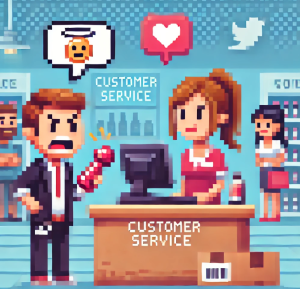
Reddit’s Most Active Users Are the Most Toxic :-(
Picture this: You join a new online community—Reddit, Wikipedia, wherever—and at first, you tread lightly. You post politely. You read the room. You’re civil. Fast forward a few years… and suddenly, you’re throwing shade in comment threads like it’s your day job.
Turns out, this isn’t just a personal spiral—it might be a social media pattern.
A new study analyzed over 500 million Reddit and Wikipedia comments spanning 14 years, and the results are both fascinating and a little unsettling. Researchers found that the longer people stay on these platforms, the more toxic they become, at least since the mid-2010s.
Yep. People didn’t always behave this way. I know I don’t behave this way on Reddit.
Let’s unpack what’s going on.
The Tale of Two Internets: Pre-2013 vs. Post-2013
Back in the early days of Reddit and Wikipedia—think pre-2013—the trend was kind of hopeful. People who stuck around actually became less toxic over time. They adapted. They learned the rules. They mellowed out.
But sometime around 2013, that trend flipped.
After that point, the longer someone stayed on Reddit or Wikipedia, the more toxic they became. And it wasn’t just a blip. This reversal has continued, with newer users becoming increasingly negative, argumentative, and even aggressive the longer they remain active.
So what changed?
While the study doesn’t delve into causes (it focuses more on patterns than blame), 2013–2015 marked a turning point in the digital world: the smartphone explosion, algorithm-fueled echo chambers, and the rise of “doomscrolling” all became integral to our everyday lives. Maybe social platforms just stopped rewarding civil discourse and started favoring hot takes and viral outrage.
Not All Platforms Spiral the Same Way
Reddit and Wikipedia showed very different flavors of toxicity.
On Reddit, the most active users were also the most toxic, from the very beginning. Their first comments were already spicier than those of casual users. And as time went on, that toxicity only deepened.
On Wikipedia, things flipped. The most active editors—those knee-deep in talk page debates—were actually less toxic than casual editors. This might be because Wikipedia has stronger community norms and moderation. Or maybe it’s the kind of people who stick around: committed, collaborative, maybe a little nerdy (in the best way).
So, while Reddit’s power users might fuel the fire, Wikipedia’s core contributors seem to dampen it.
Do Posts Go Bad, Too?
Here’s where it gets really trippy: it’s not just people who change. Information does too.
The study also tracked how conversations around the same YouTube and Imgur links evolved. The more a post was shared and commented on, the more toxic the conversations around it tended to be. It’s like virality curdled the vibe.
In other words, it’s not just users who decay. Popular content develops its social gravity—and it often pulls discussions into darker territory.
The “Forever Scroll” Effect
Maybe this shouldn’t surprise us. The internet has become a weird place. We’ve all seen how quickly a friendly thread can turn into a flame war. But what’s startling is how systematic the shift is. This isn’t just about a few bad apples. It’s a platform-wide pattern that flipped around the same time that our phones became permanent fixtures in our hands.
It’s also a reminder that “toxicity” is not some fixed personality trait. It’s something that shifts across time, platforms, and norms. And if you’ve ever found yourself getting snarkier in the comments than you’d be in real life… you’re not alone.
Let’s Explore Together
The internet doesn’t have to be a rage machine. However, studies like this one give us a glimpse behind the curtain—and perhaps even a way forward.
So we’re curious:
- What do you think changed around 2013 that made social media more toxic?
- Have you noticed your own online behavior shift over time?
- What’s the weirdest or most toxic comment thread you’ve ever read?
Drop your thoughts below or tag us on social. And if you’re into this kind of research-meets-real-life storytelling, visit us at This Week in Public Health for more.
We’ll be there, trying to stay nice in the comments.



